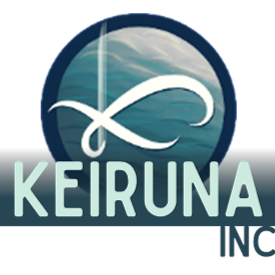At the Myanmar Coastal Conservation Lab (MCCL) at Point B Design + Training, we’ve developed a thoughtful, remarkably effective training program to build research and conservation skills and knowledge and to cultivate the passion that many youths have for environmental work.
We designed this as part of the Gulf of Mottama Project’s (GoMP) Conservation and Research Training Program, which I developed while working for IUCN to help meaningfully achieve my pre-set work duties of “building local capacity for research.”
This program’s core is the MCCL internship program, where we work with three sets of interns: (1) full-time interns who are recent graduates; (2) graduate student interns from Mawlamyine and Bago Universities; (3) undergraduate student interns from those same universities. We are open to students from any department, as long as their application and interview shows genuine passion for environmental issues and an eagerness to learn. This is implemented alongside a program for supporting and guiding university research teams (faculty and graduate students), as well as joint workshops that are open to interested participants beyond our internship cohort.
We built this program to address three concerns that had arisen during previous pre-defined efforts to build research skills at local universities:
- How to meaningfully engage a cohort of participants through a curriculum of foundational and specific trainings?
- How to (quickly!) fill some of the critical gaps of the existing educational system and build skills and mindsets needed to underpin thoughtful, high-quality research (and application of that research)?
- How to set participants up for sustained growth and success beyond the lifespan of our project?
The internship program is built on a training curriculum that covers 3 levels of skills:
- Foundational mindset: Establishing critical thinking, systems thinking, and mindfulness as core ways of thinking
- Enabling tools: Building at least basic computer skills (perhaps even starting with typing trainings), and also practice skills for general communication (including reading research papers in English) and career logistics (e.g., how to write a CV)
- Research-specific skills: This includes general, cross-cutting skills (proposal writing, project design, preparing budgets, research ethics), as well as more specific methodologies for data collection and analysis, and how to present findings to stakeholders
These skills are learned through regular skills seminars, specific trainings, and intensive workshops, as well as field experience and participation in ongoing research projects and outreach activities. We sequentially increase the responsibilities of the full-time and graduate student interns, transferring program management, training, and leadership skills to them over time. I (or another external expert) directly train the MCCL staff, developing trainings and research methodologies together, and then they implement these activities as a sort of “training of trainers.” The senior interns initially pick up some co-training duties, and then are able to lead the trainings and field activities on their own, allowing us to make the most of our relatively small team.
I’m very proud of this program, which has been running since 2018 and has trained at least 20 interns thus far, plus at least 15 other students who have joined in selected activities that we have evaluated. We added two Research Assistant positions for former full-time interns, and extended the program from 6 months to 1 year based on the most common “negative” feedback from our end-of-internship evaluations, which was that 6 months was too short.
These evaluations indicate that our interns gain substantial skills, and – most resoundingly for me – confidence. “Confidence” was not an option I’d put in our evaluation surveys; it was written in by several interns under the “Other: Specify” option. And this represents what I love so much about our program: the intangible outcomes – the happy little (but growing) community of youths building confidence and skills together, and who take the tools and information from our trainings and make magic out of them.


Leave a comment